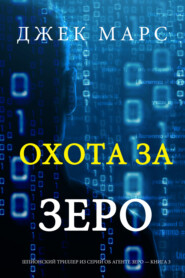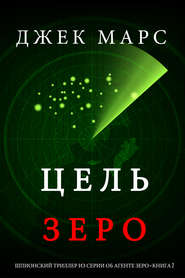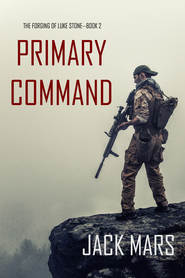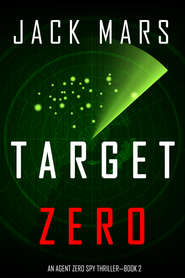По всем вопросам обращайтесь на: info@litportal.ru
(©) 2003-2025.
✖
House Divided
Настройки чтения
Размер шрифта
Высота строк
Поля
Luke had just spent two hours with Mustafa Boudiaf. He was having trouble getting it out of his mind.
The one place in the SRT headquarters where smoking was allowed was the interrogation room. They had given Boudiaf coffee and cigarettes, and he had drunk and smoked the entire time. But that didn’t soften him up any.
Boudiaf wanted a lawyer. Boudiaf wanted a phone call. Boudiaf wanted to know if he was under arrest. Boudiaf had apparently watched a lot of television.
“What do you know about the plane crash in Egypt?” Ed said.
The sight of a giant black man looming over him didn’t seem to hold any terror for Boudiaf. He shook his head. “I don’t know anything about a plane crash. I was asleep when you invaded my home.”
“Where did all your furniture go?” Ed said.
Boudiaf shrugged. “I am very poor. That’s America. I work all the time, but I have no money. I don’t have any furniture. What you saw is all I have.”
Luke nearly laughed. “What if I told you we know you sent all your furniture to Pennsylvania three days ago? That’s a strange thing to do, isn’t it? Send your furniture and all your belongings inland? Why would someone do that?”
Luke paused.
“Is that what you were doing?”
Boudiaf looked at him. “Who are you, please?”
“It doesn’t matter who I am.”
“It does because I will have your job.”
Luke shook his head. “You’re not the first person who has told me that.”
“You must charge me with a crime or release me. Since I have committed no crime, there is nothing to charge me with. You are breaking your own laws.”
Luke shrugged. “I know you’re in a hurry because you have a plane to catch tomorrow night.”
Boudiaf made no attempt to conceal it. “Yes, I do. I am going home.”
“I thought this was your home.”
“You’re a very foolish man.”
Suddenly, Ed hit the jackpot. “You’re going to miss your plane,” he said quietly, and in a matter-of-fact tone.
That idea set Boudiaf off. “You must release me!” he shouted. “You’re dead men, do you understand? You’re all dead men!” Then he stopped and took a deep breath, seeming to realize what he had just done.
“Why are we dead men?”
Boudiaf shook his head. “I don’t know.”
“How are we going to die?”
“I don’t know that, either.”
Boudiaf’s shoulders slumped, and his body language changed. A moment before, he had been wired, sitting tall, ready to resist. Now he settled into his chair, seeming to resign himself to a terrible fate.
“I must get a message to my family.”
Ed nodded. “We will send it. That I can promise you.”
“If you are being honest, then give them this message. If I am not released, they must get on the plane without me, and leave me behind.”
Boudiaf wanted his family to get out. Before what happened?
Now, in the diner, the car pulled up. It was a black Lincoln Navigator SUV with smoked windows, moving slowly and carefully on the snow-slicked streets. Sometimes it was easy for Luke to forget that Gunner’s maternal grandmother was a descendent of the man who had invented floor varnish in the mid-1800s; his product was still in use more than 150 years later. Of course, the original fortune had been diluted over succeeding generations, but Gunner’s grandparents had a lot of money.
Gunner attended private school and lived in a large stone mansion at the end of a long driveway. A driver took him anywhere he wanted to go. He wasn’t breathing the rarified air of the billionaire elite like Susan’s girls, but…
It was good. Luke wanted only the best for Gunner, things he would never have if Luke’s good civil servant’s salary was paying the way. And as much as Luke wanted to see him every day, it was good that Gunner lived in a place where people were always home. He couldn’t have that with his father – Luke was away from home a lot.
He watched as the boy stepped out of the car, slammed the door, and without a backward glance picked his way through the snow toward the front door of the diner. He wore a long coat of gray wool, heavy boots, and a red scarf wrapped around his throat. He was tall and thin. He reminded Luke of a young English gentleman.
Luke smiled. The kid was trying on personas. It’s what kids did.
Gunner came in, pausing in the foyer to stomp snow and slush off his boots. He moved through the aisle with easy grace and slid into the booth, across the table from Luke. His eyes were big and blue and he was grinning.
“Hi, Dad,” he said.
“Hi, Gunner. What’s the smile about?”
Gunner shrugged. “No school today. What’s your smile about?”
Luke shrugged. “Having a surprise meal with my favorite person.”
The waitress came over, a woman of about forty-five. “This is who you were waiting on?”
Luke nodded.
She put a hand on the side of her face, as if to block Gunner from hearing what she said. “He’s good-looking.”
Now everyone was smiling. “Maybe a little young, though,” Luke said.
She winked at Gunner. “That’s okay. I can wait. You guys ready to order?”
They ordered eggs, pancakes, sausages, the works. Gunner had orange juice. Luke stuck with a bottomless cup of coffee. Then they settled in. Luke was mindful of the time, but on the other hand, he had been up and working since before five a.m., and what was more important than time with his son?
“I saw that plane crash on the news this morning,” Gunner said without preamble. “An American congressman got killed.”
Luke nodded. “Yeah. That’s tough.”
“Are you going there?”
“Egypt?” Luke said.
The one place in the SRT headquarters where smoking was allowed was the interrogation room. They had given Boudiaf coffee and cigarettes, and he had drunk and smoked the entire time. But that didn’t soften him up any.
Boudiaf wanted a lawyer. Boudiaf wanted a phone call. Boudiaf wanted to know if he was under arrest. Boudiaf had apparently watched a lot of television.
“What do you know about the plane crash in Egypt?” Ed said.
The sight of a giant black man looming over him didn’t seem to hold any terror for Boudiaf. He shook his head. “I don’t know anything about a plane crash. I was asleep when you invaded my home.”
“Where did all your furniture go?” Ed said.
Boudiaf shrugged. “I am very poor. That’s America. I work all the time, but I have no money. I don’t have any furniture. What you saw is all I have.”
Luke nearly laughed. “What if I told you we know you sent all your furniture to Pennsylvania three days ago? That’s a strange thing to do, isn’t it? Send your furniture and all your belongings inland? Why would someone do that?”
Luke paused.
“Is that what you were doing?”
Boudiaf looked at him. “Who are you, please?”
“It doesn’t matter who I am.”
“It does because I will have your job.”
Luke shook his head. “You’re not the first person who has told me that.”
“You must charge me with a crime or release me. Since I have committed no crime, there is nothing to charge me with. You are breaking your own laws.”
Luke shrugged. “I know you’re in a hurry because you have a plane to catch tomorrow night.”
Boudiaf made no attempt to conceal it. “Yes, I do. I am going home.”
“I thought this was your home.”
“You’re a very foolish man.”
Suddenly, Ed hit the jackpot. “You’re going to miss your plane,” he said quietly, and in a matter-of-fact tone.
That idea set Boudiaf off. “You must release me!” he shouted. “You’re dead men, do you understand? You’re all dead men!” Then he stopped and took a deep breath, seeming to realize what he had just done.
“Why are we dead men?”
Boudiaf shook his head. “I don’t know.”
“How are we going to die?”
“I don’t know that, either.”
Boudiaf’s shoulders slumped, and his body language changed. A moment before, he had been wired, sitting tall, ready to resist. Now he settled into his chair, seeming to resign himself to a terrible fate.
“I must get a message to my family.”
Ed nodded. “We will send it. That I can promise you.”
“If you are being honest, then give them this message. If I am not released, they must get on the plane without me, and leave me behind.”
Boudiaf wanted his family to get out. Before what happened?
Now, in the diner, the car pulled up. It was a black Lincoln Navigator SUV with smoked windows, moving slowly and carefully on the snow-slicked streets. Sometimes it was easy for Luke to forget that Gunner’s maternal grandmother was a descendent of the man who had invented floor varnish in the mid-1800s; his product was still in use more than 150 years later. Of course, the original fortune had been diluted over succeeding generations, but Gunner’s grandparents had a lot of money.
Gunner attended private school and lived in a large stone mansion at the end of a long driveway. A driver took him anywhere he wanted to go. He wasn’t breathing the rarified air of the billionaire elite like Susan’s girls, but…
It was good. Luke wanted only the best for Gunner, things he would never have if Luke’s good civil servant’s salary was paying the way. And as much as Luke wanted to see him every day, it was good that Gunner lived in a place where people were always home. He couldn’t have that with his father – Luke was away from home a lot.
He watched as the boy stepped out of the car, slammed the door, and without a backward glance picked his way through the snow toward the front door of the diner. He wore a long coat of gray wool, heavy boots, and a red scarf wrapped around his throat. He was tall and thin. He reminded Luke of a young English gentleman.
Luke smiled. The kid was trying on personas. It’s what kids did.
Gunner came in, pausing in the foyer to stomp snow and slush off his boots. He moved through the aisle with easy grace and slid into the booth, across the table from Luke. His eyes were big and blue and he was grinning.
“Hi, Dad,” he said.
“Hi, Gunner. What’s the smile about?”
Gunner shrugged. “No school today. What’s your smile about?”
Luke shrugged. “Having a surprise meal with my favorite person.”
The waitress came over, a woman of about forty-five. “This is who you were waiting on?”
Luke nodded.
She put a hand on the side of her face, as if to block Gunner from hearing what she said. “He’s good-looking.”
Now everyone was smiling. “Maybe a little young, though,” Luke said.
She winked at Gunner. “That’s okay. I can wait. You guys ready to order?”
They ordered eggs, pancakes, sausages, the works. Gunner had orange juice. Luke stuck with a bottomless cup of coffee. Then they settled in. Luke was mindful of the time, but on the other hand, he had been up and working since before five a.m., and what was more important than time with his son?
“I saw that plane crash on the news this morning,” Gunner said without preamble. “An American congressman got killed.”
Luke nodded. “Yeah. That’s tough.”
“Are you going there?”
“Egypt?” Luke said.











